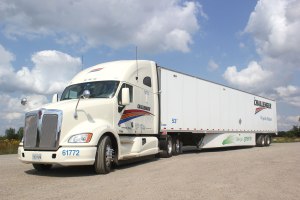Technology is all around us and for many of us it has become part of our lives. Think about it, with all the hubbub about smart phones, latest cameras and so on we assume all of us are using the latest phones and line up at the mall every time a new edition is released. That being said you can imagine how surprised I was to find a few of my students didn’t use cell phones or even email when teaching a class for new Drivers earlier this year.
I came across it purely by accident, I was talking about the border crossing process where I show students some of the apps available for smart phones to help with delay times at the border. This is in contrast to the way I use to cross the border in the 80’s and 90’s where you just hoped it was clear and tried to cross at low times like two o’clock in the morning. My face must have shown a shocked look because one particular student went on to say that he didn’t even have an email account. When I asked how he was planning on sending in his resume to potential carriers, he explained his wife had set up an email for him, but he doesn’t know how to use it. I am starting to notice a trend of this from many of the second career students who may have been in a manufacturing setting for a long period of time. What many are not aware of is that the transportation industry requires more skills than just driving.
In today’s transportation industry other skills are just as important and technological skills are now becoming the norm in the industry. Logbooks are now being used in electronic form with many carriers. Keeping in touch with family is much easier than in the past with technology like Skype, FaceTime, and other applications. As mentioned before, efficiency can be greatly increased through the use of border application software and other helpful programs. In fact, in my career past being familiar with technology was one of the factors that helped me get a promotion with the company I was with. The other applicants didn’t have that knowledge base and that was the direction the company was going.
If I can offer the new person to the transportation industry a tip it would be to learn how to use technology. Get comfortable with things like cell phones and tablets because they will be around for a long period of time. Manufacturers like Kenworth, Peterbilt, and others, are including tablets installed right into the dash of the truck for new models. Log software will be more prominent in the future and many companies are already using satellite systems for communication. Learning how to use technology can be one of the best upgrades you can do for yourself as we move into the future. If you don’t, you may find that you get left behind in the dust. Its not just about driving anymore, the industry has changed!
About the Author
Bruce Outridge has been in the transportation industry for over 30 years and is the author of the books; Driven to Drive and Running by the Mile. Challenger Motor Freight Inc. operates across North America and is considered one of the best managed companies in Canada. To learn more about Challenger Motor Freight Inc. Please visit their website at www.challenger.com
